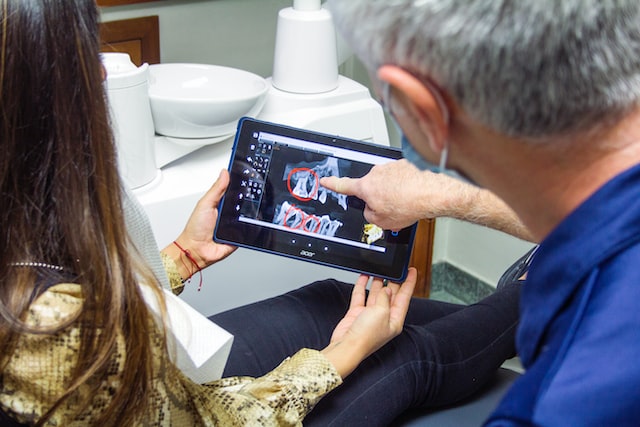An interesting article titled “The wisdom behind the third molars removal: A prospective study of 106 cases” appears in the August 2021 of the Annals of Medicine and Surgery written by Kerdoud Ouassime and et. al. (vol. 68, pp. 102639). The article seeks evaluate the decision-making of wisdom teeth extractions and the epidemiological profile in a population of 106 cases.
In the article the authors mention how debate continues about the best
strategies for the management of wisdom teeth. The majority of oral and maxillofacial surgeons continue to say that that most wisdom teeth are potentially pathological and should be extracted while others argue that only wisdom teeth third with associated pathology should be removed. To investigate the indications for wisdom teeth
extractions the authors conducted an analysis of 106 patients seem at their hospital between January 1, 2020 and January 1, 2021. The patients were divided into two groups to extract wisdom teeth removal based on scientific evidence of the surgery should occur or not. All patients who had extraction of wisdom teeth under general or local anesthesia were included in the study. It is noted that the extractions were surgeries performed by a team of residents while being superivised by the chief professor of the maxillofacial surgery department. The patients were assessed for oral hygiene, neurosensory deficit, infection, wound dehiscence, mouth opening, and reasons for a dental visit, operating time, tooth position, and patterns for extraction.
The mean age of patients in the study was 32.12 years. Only 28% of the wisdom teeth of the patients in the study were extracted. The authors had 81 patients included in Group (I), who were treated for wisdom teeth removal were the decision-making was justified. This meant that a total of 76.4% had a reason for extraction that was justified. The authors had 25 patients included in Group (II), who were treated for wisdom teeth removal which the decision-making was not justified. The reasons why extraction of the wisdom tooth was not justified included extraction for preventative reasons or in where there were asymptomatic wisdom teeth that did not scientific evidence for removal.

The authors found that the surgical outcomes (hospital stay, operating time, blood loss) showed no difference between the two groups. Interestingly the authors had more women who had wisdom teeth extracted. The percentage of wisdom teeth extracted in women, was 65.6%, which is was significantly higher than the men in the study with a sex ratio of 1.86. The authors mention that this is explained by the fact that women consult more often than men due to their greater motivation for oral hygiene and they in general care more about their appearance. The authors state
“Monitoring asymptomatic wisdom teeth appears to be an appropriate strategy. Regarding retention versus prophylactic extraction of asymptomatic wisdom teeth, decision-making should be based on the best evidence combined with clinical experience”
The authors feel that dental health authority guidelines shoul be updated. They also feel that the general public should shift their thinking towards the wisdom tooth not as something that generators problems but as something that should preserved through good brushing and oral hygiene methods.
